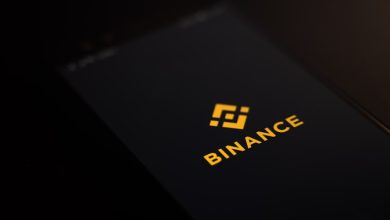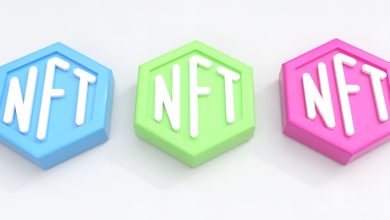Chainlink and the Power of Decentralized Oracles

- Understanding the concept of decentralized oracles
- The evolution of Chainlink in the blockchain industry
- How Chainlink is revolutionizing smart contracts
- The importance of data accuracy in decentralized oracles
- Exploring the use cases of Chainlink in various industries
- Challenges and opportunities for decentralized oracles in the future
Understanding the concept of decentralized oracles
Decentralized oracles play a crucial role in blockchain technology by providing external data to smart contracts securely and reliably. These oracles act as bridges between the blockchain and the real world, enabling smart contracts to access information such as prices, weather conditions, and other off-chain data.
Chainlink is a leading decentralized oracle network that ensures the accuracy and integrity of data feeds by aggregating information from multiple sources. This decentralized approach minimizes the risk of manipulation or single points of failure, making the data more trustworthy and tamper-proof.
By using decentralized oracles like Chainlink, smart contracts can execute complex tasks autonomously, such as triggering payments based on real-time market prices or weather conditions. This automation eliminates the need for intermediaries and reduces the potential for human error or fraud.
Overall, understanding the concept of decentralized oracles is essential for grasping the full potential of blockchain technology and its applications. By leveraging decentralized oracles like Chainlink, developers can create more secure, transparent, and efficient decentralized applications that are not reliant on centralized authorities.
The evolution of Chainlink in the blockchain industry
The evolution of Chainlink in the blockchain industry has been nothing short of remarkable. Since its inception, Chainlink has revolutionized the way smart contracts interact with external data sources through the use of decentralized oracles. This innovation has opened up a world of possibilities for blockchain applications, allowing them to access real-world data in a secure and reliable manner.
Chainlink has quickly become a key player in the decentralized finance (DeFi) space, providing a crucial link between blockchains and external data sources. This has enabled a wide range of DeFi applications such as decentralized exchanges, lending platforms, and prediction markets to operate with a level of security and reliability that was previously unimaginable.
One of the key reasons behind Chainlink’s success is its robust network of nodes, which are responsible for retrieving and verifying data from external sources. These nodes are incentivized to provide accurate data through the use of LINK tokens, which are used to pay for services on the Chainlink network. This system ensures that only trustworthy data is used in smart contracts, minimizing the risk of manipulation or fraud.
Looking to the future, Chainlink shows no signs of slowing down. With ongoing developments such as the introduction of off-chain reporting and the expansion of its oracle network, Chainlink is set to further solidify its position as a leader in the blockchain industry. As blockchain technology continues to evolve, Chainlink will undoubtedly play a crucial role in enabling the next generation of decentralized applications to flourish.
How Chainlink is revolutionizing smart contracts
Chainlink is a decentralized oracle network that aims to bridge the gap between smart contracts on the blockchain and real-world data. By providing a secure and reliable way to connect smart contracts with external data sources, Chainlink is revolutionizing the way smart contracts operate.
Smart contracts are self-executing contracts with the terms of the agreement directly written into code. While they offer numerous advantages in terms of automation and trustlessness, smart contracts are limited by their inability to access external data on their own. This is where Chainlink comes in, acting as a decentralized oracle network that retrieves data from off-chain sources and delivers it to smart contracts on the blockchain.
Chainlink’s decentralized approach ensures that the data provided to smart contracts is accurate and tamper-proof, eliminating the need for trust in a single centralized entity. This not only enhances the security and reliability of smart contracts but also opens up a world of possibilities for their use cases.
With Chainlink, smart contracts can now interact with real-world data such as market prices, weather conditions, and sports scores, enabling a wide range of applications across various industries. From decentralized finance (DeFi) platforms to supply chain management and insurance, the potential uses for Chainlink-enabled smart contracts are virtually limitless.
The importance of data accuracy in decentralized oracles
Ensuring data accuracy is crucial in the realm of decentralized oracles. Inaccurate data can lead to faulty smart contract executions, which can have significant financial implications. Chainlink recognizes the importance of this issue and has implemented various mechanisms to address it.
By utilizing a network of reputable data providers and implementing decentralized consensus mechanisms, Chainlink strives to maintain the highest level of data accuracy. These mechanisms ensure that data inputs are reliable and verifiable, reducing the risk of manipulation or tampering.
Furthermore, Chainlink’s transparent and open-source approach enables anyone to audit the data sources and processes involved in providing accurate data. This level of transparency instills trust in the system and gives users confidence in the integrity of the data being used.
In conclusion, data accuracy is paramount in decentralized oracles, and Chainlink’s commitment to this principle sets it apart as a reliable and trustworthy solution for connecting smart contracts with real-world data.
Exploring the use cases of Chainlink in various industries
Chainlink’s decentralized oracles have a wide range of use cases across various industries, providing reliable and tamper-proof data feeds for smart contracts. Let’s explore some of the ways in which Chainlink is revolutionizing different sectors:
- Finance: In the finance industry, Chainlink’s oracles play a crucial role in enabling decentralized finance (DeFi) applications. By securely connecting smart contracts with real-world data such as asset prices, interest rates, and exchange rates, Chainlink ensures the integrity and accuracy of financial transactions.
- Supply Chain Management: Chainlink’s oracles can be used to track and verify goods as they move through the supply chain. By linking smart contracts to IoT devices, sensors, and external data sources, Chainlink enables transparent and automated supply chain processes.
- Insurance: In the insurance sector, Chainlink’s oracles help streamline claims processing and automate underwriting processes. By providing verifiable data on weather conditions, flight delays, and other relevant factors, Chainlink ensures faster and more accurate insurance payouts.
- Gaming: Chainlink’s oracles are increasingly being used in the gaming industry to enable provably fair gameplay and secure in-game asset trading. By connecting smart contracts to external gaming data and random number generators, Chainlink enhances the transparency and integrity of online gaming experiences.
- Healthcare: In healthcare, Chainlink’s oracles can securely connect patient data from wearables, medical devices, and electronic health records to smart contracts. This enables secure and privacy-preserving sharing of medical information, as well as automated health insurance claims processing.
Overall, Chainlink’s decentralized oracles are driving innovation and efficiency across a wide range of industries, transforming the way data is sourced and verified for smart contracts. As blockchain technology continues to evolve, the potential applications of Chainlink in various sectors are limitless, offering new opportunities for secure and reliable data exchange.
Challenges and opportunities for decentralized oracles in the future
One of the main challenges facing decentralized oracles in the future is the issue of security. As these oracles become more widely used in various applications, the risk of manipulation and data breaches also increases. Ensuring the security and integrity of the data being fed into smart contracts is crucial for the success of decentralized oracles.
Another challenge is the scalability of decentralized oracles. As the demand for real-time data increases, decentralized oracles must be able to handle large volumes of data quickly and efficiently. Improving the scalability of decentralized oracles will be key to their widespread adoption in the future.
Despite these challenges, there are also significant opportunities for decentralized oracles in the future. One of the main opportunities is the potential for these oracles to revolutionize industries such as finance, supply chain management, and healthcare. By providing reliable and tamper-proof data to smart contracts, decentralized oracles can streamline processes and increase efficiency.
Additionally, decentralized oracles have the opportunity to foster a more transparent and trustless ecosystem. By removing the need for intermediaries and centralized authorities, decentralized oracles can help create a more decentralized and democratized system. This shift towards decentralization has the potential to empower individuals and businesses alike.
In conclusion, while there are challenges that need to be addressed, the future looks bright for decentralized oracles. By focusing on security, scalability, and seizing the opportunities presented, decentralized oracles have the potential to transform the way we interact with data and smart contracts in the years to come.



